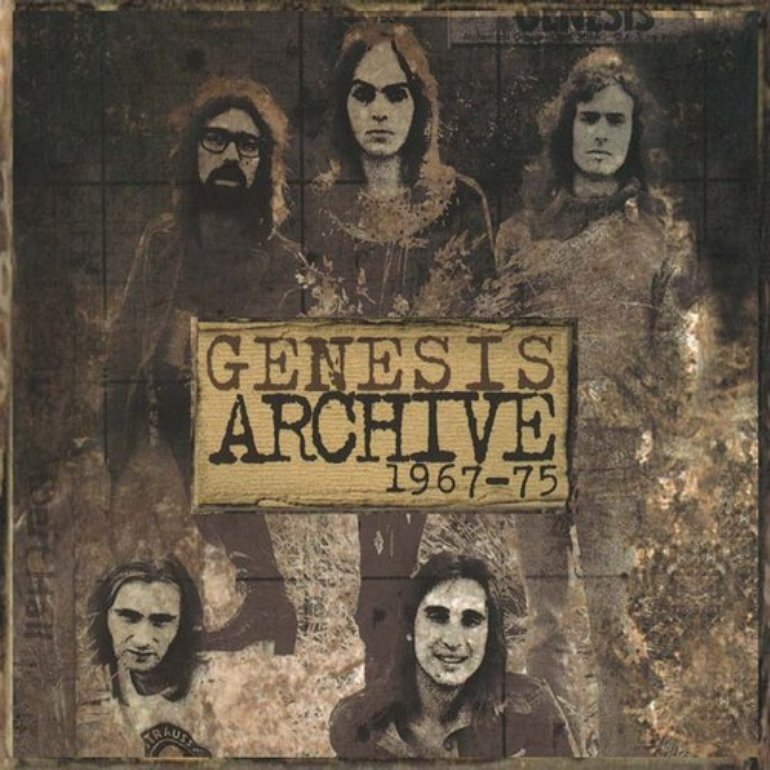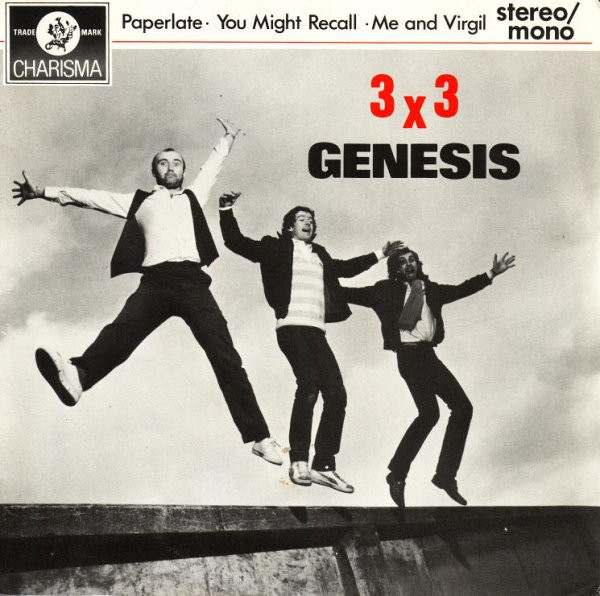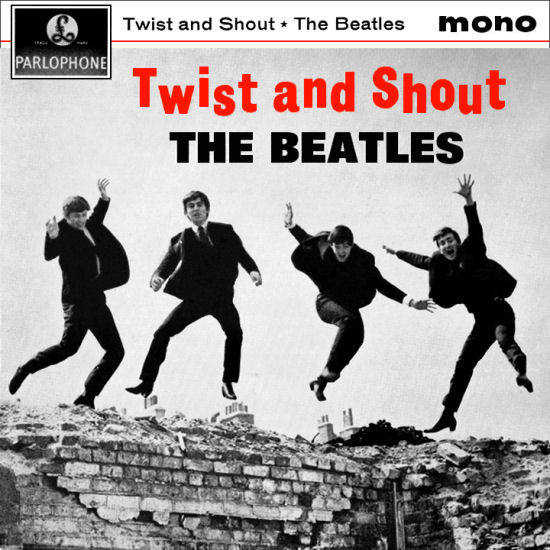In June 1998, Genesis released their first of two ‘Archive’ box sets: Archive 1967 – 1975 covers the era with Peter Gabriel as lead vocalist.
The plans to release ‘Archive’ box sets dated back to 1994
After the release of their last studio album Calling All Stations* in 1997, Genesis began putting together unreleased material from their history. The idea dated back to 1994. Originally there were plans to release three box sets. The first would have featured the Gabriel years, the second the period from the mid 1970’s to the early 80’s and the last the period from the mid 80’s to the early 90’s.
But over the years, there were delays and plans were changed. The recordings were released on two box sets, the first one being Archive 1967-75* , released in 1998, the second one being Genesis Archive 2 1976-1992*, released in 2000, which covers the era with Phil Collins on lead vocals. Both sets feature unreleased live performances, studio tracks and demo songs.
A complete live performance of The Lamb Lies Down On Broadway
Archive 1967 – 1975 is a box set that includes four discs. The mixing was done by Genesis producer Nick Davis. The first two discs feature a complete live performance of Genesis’ magnum opus The Lamb Lies Down on Broadway*. When the band toured the concept album in 1974/75, they played the whole double album. After this tour, Peter Gabriel left the band. The live performance in the box set is from The Shrine Auditorium, Los Angeles. Unfortunately, most of Peter Gabriel’s stories about the adventures of Rael between the songs were left out.
Peter Gabriel re-recorded his vocals at Real World Studios in 1995
Also, it is not a completely live recording. Peter Gabriel and former lead guitarist Steve Hackett re-recorded some of their parts in 1995. You can hear the difference in Gabriel’s voice if you compare the studio versions from 1974 to the live version on Archive I. Gabriel recorded his vocals at his Real World Studios. Also, the last song ‘It’, fades out because the tape machine at the Shrine ran out halfway through the song.
The live performance in general sounds more powerful than the studio version and the crowd seems to be enthusiastic. Apart from that, the songs are almost identical to the studio versions. The only exception is ‘The Waiting Room (Evil Jam)’, which was an instrumental with lots of space for improvisation that was therefore played differently every night. Apart from that, especially the title track, ‘Fly On A Windshield’ and ‘Carpet Crawlers’ stand out.
A live performance of ‘Supper’s Ready’ from 1973
Disc 3 includes live performances from the Rainbow Theatre in London, recorded on the Selling England By the Pound* tour in 1973. We finally get to hear songs like ‘Dancing With The Moonlight Knight’ and ‘Supper’s Ready’ live with Peter on vocals on an official release. Here, the stories are included. It also features a 1971 BBC recording of ‘Stagnation’ and b-sides and studio tracks from that era like ‘Twilight Alehouse’ and ‘Happy The Man.’
The last disc is the most interesting one, at least for the fans. It features songs from the band’s earliest period, still with Anthony Phillips on guitar. There are BBC sessions and many demo songs. You can hear the band becoming Genesis on this disc. Some of the tracks are real gems, from the early version of ‘Dusk’ to the appealing ‘Hey!’. There is an atmosphere in these early recordings that went missing after Ant Phillips left the band.
Apart from the four discs, there is a 82-page booklet which contains the band’s history and interviews with band members and associates.
So Archive 1967 – 1975 is a quite interesting box set. We finally get to hear official live versions of Gabriel-era songs sung by him. The only official live release with him had been Live* from 1973, which only covers songs from Trespass*, Nursery Cryme* and Foxtrot*. The inclusion of b-sides and unreleased studio tracks like ‘Twilight Alehouse’ make this box set special. Some would argue that disc 4 is only for the hardcore fans, but it also is the most surprising and most interesting of the four discs. Unfortunately some rare tracks and demos that are known to exist did not make it onto the box set. But all in all, Archive 1967-75 is an extraordinary release. Fans seemed to agree with that: It reached no. 35 in the UK charts in 1998.
The band met at Heathrow Airport to promote the release
To promote the release of Archive I, Genesis members past and present reunited for a photo shoot (and a following dinner) at Heathrow Airport in May 1998. There were Tony Banks, Peter Gabriel, Anthony Phillips, former drummer John Silver, Phil Collins, Steve Hackett and Mike Rutherford. The band’s first drummer Chris Stewart only made it to the dinner. Trespass-era drummer John Mayhew did not attend the event.
Genesis’ next ‘Archive’ release would be in 2000. It would be entitled Archive II 1976 – 1992 and feature the period with Phil Collins as lead vocalist.
*= affiliate link



